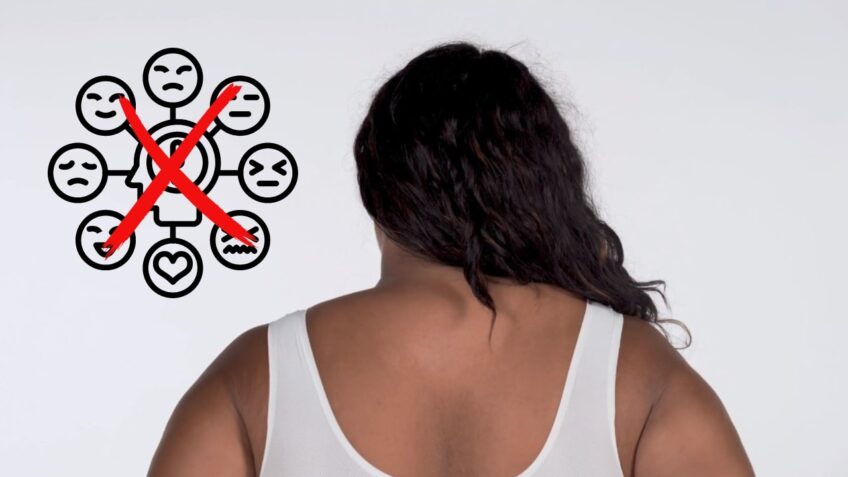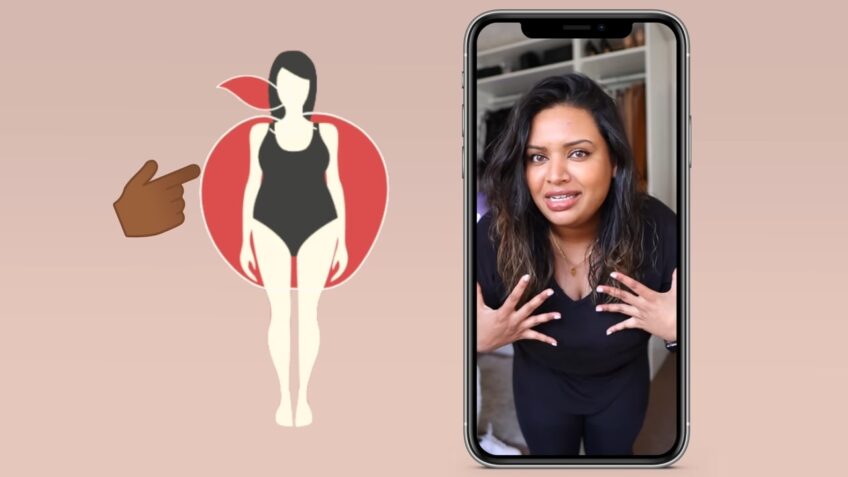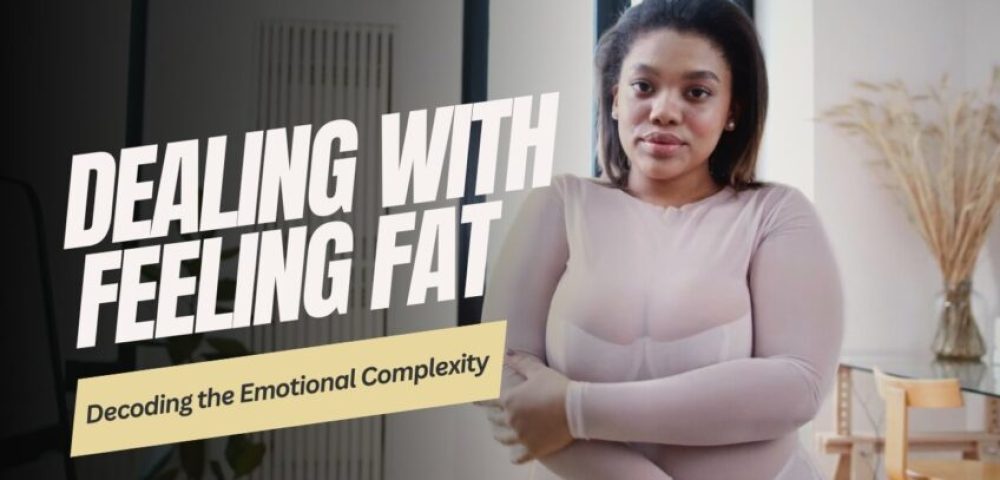I feel fat. Have you recently had this experience, or have you heard your spouse, daughter, son, or coworkers talk about it? It is a very typical expression that seems to cut across cultures and languages. In the majority of languages, there is an equivalent expression.
The phrase “feeling fat” may be used more frequently by people who identify as women and girls, although it appears to capture a common sensation for people of all genders and identities.
Although “feeling fat” has been associated with eating disorders and a distorted perception of one’s body (such as in body dysmorphic disorder), it is evident that this everyday idiom is also employed by members of the general public and by those who are not affected by eating disorders.
Page Contents
- 1 Over-evaluation of Shape and Weight in Eating Disorders
- 2 Between Over-evaluating and Strict Dieting in Eating Disorders
- 3 Fat is Not a Feeling
- 4 Hour by Hour, Day to Day
- 5 Physical or Biological Change
- 6 How Can We Look at Our Unique Experiences?
- 7 FAQ
- 7.1 Is “feeling fat” only associated with people who have eating disorders?
- 7.2 Can “feeling fat” be caused by other factors besides body shape and weight?
- 7.3 Can “feeling fat” lead to harmful coping mechanisms?
- 7.4 Is “feeling fat” a valid emotion?
- 7.5 How can I manage my “feeling fat” sensations?
- 7.6 Are there any healthy ways to manage “feeling fat” sensations?
- 8 Conclusion
Over-evaluation of Shape and Weight in Eating Disorders
Anorexia nervosa, bulimia nervosa, binge eating disorder, and body dysmorphic disorder sufferers appear to experience and notice “feeling fat” more strongly.
The same group links this sensation to longer periods of, and higher levels of, discomfort.
This may result in coping mechanisms include restricting one’s intake of food and liquids, exercising excessively, purging, abusing laxatives, having obsessive thoughts and behaviors, engaging in self-harm, and finally considering suicide.
Let’s examine why we “feel fat” and why this emotion is so strongly related to binge eating, as well as body image issues for adolescents, young adults, and the families who care about them.
Between Over-evaluating and Strict Dieting in Eating Disorders
The experience of “feeling fat” lies in between an excessive evaluation and concern of one’s physical appearance and the ensuing hard, strict, and restrictive dieting plan.
It is a vicious cycle that can be very challenging to break yet shockingly simple to reinforce. Teenagers, young adults, and adults are pushed to feel that they need to rectify or change the outcome by the hard, internal critical signals that are reinforced by the negative body-related ideas they hold.
There is a diet cycle. Overappreciation, preoccupation, rigidity, and control are all effects of dieting. The difficulty of breaking the pattern increases with the length of the cycles.
Fat is Not a Feeling

Though it’s a common phrase, “I feel fat” is not actually an emotion, as we all know. We cannot “feel” the physical fat that is stored in our bodies because it is not an emotion. Feeling fat is a descriptive phrase that humans use to convey a (often unfavorable) state of being to ourselves or others.
The scales have no bearing on how obese you feel.
Speaking with numerous young people (and adults) from all over the world has made it very evident that the physiological experience that we individually connect with being “fat” has nothing to do with body shape, size, or weight.
Both people with larger and smaller bodies have feelings and experiences that are particular to and descriptive of them.
Hour by Hour, Day to Day
It’s undeniable that the story of “feeling fat” may be compelling and at times overwhelming.
Both children and adults talk about how certain events affect the rest of their days. It is common to hear descriptions of mood swings, altered plans, social isolation, worry, disgust, and fury.
It can also change a great deal. Feelings might come and go quickly or occasionally linger for hours or days. On the same day, or even at the same hour, the emotions can come and go. It will be felt as genuine and potent on each occasion.
Physical or Biological Change

The sensations and associated experiences can be extremely potent and last for various lengths of time. We are aware that the body does not alter in this manner on a daily or even hourly basis, making alterations to size, shape, and fat distribution impossible.
“Fat” is mislabeled. So what really is going on when we “feel fat”?
We might be trying to explain a state or sensation that has a specific and descriptive significance for us if the fat we “feel” is not actually a “feeling.” According to research, people generally—and persons who have food or body concerns in particular—equate “feeling fat” with “feeling bad.”
The idea that being “thinner” corresponds to being healthy and happier is then reinforced. But the unpleasant sensation is what we try to explain in all its intricacy. It turns out that our perception of being overweight serves as a quick internal rule or message for a variety of subtler occurrences and changes.
There are three possible causes for this “feeling”:
1. We experience increased bodily awareness
We became more conscious of our bodies at that time due to anything that drew our attention. (For those meeting the criteria for diagnosis for eating disorders and body dysmorphic disorder, there is a heightened awareness or high alert state for much of the time.)
The following elements could heighten our awareness of our bodies:
- Someone commenting on our appearance (in either a positive or negative manner)
- Feeling sweaty
- Feeling movement or wobbles during exercise
- Clothing that feels tight or feels unusual against the skin
- Body checking
- Bloating
- Feeling unwell.
2. We experience an uncomfortable or adverse physical state
Other painful, unpleasant, or harmful biological or physical situations may be incorrectly classified or filed. These experiences may lead us to judge or negatively characterize ourselves.
Negative bodily experiences include, for example:
- Bloating
- PMS (premenstrual syndrome)
- Feeling excessively full
- Feeling sleepy, tired or exhausted
- Feeling bloated, puffy or sore.
3. We may be experiencing other emotions
When we experience uncomfortable, unpleasant, or draining feelings, we may mislabel them. We may have trouble identifying these feelings, and we link them to unpleasant physical sensations.
A few instances of bad feelings and experiences:
- Feeling low
- Feeling bored
- Feeling lonely
- Feeling unloved.
How Can We Look at Our Unique Experiences?

It is quite helpful to take a close look at anything that upsets our emotions, changes our mood, or has an impact on our welfare. Many of these questions can be answered and even the oldest skeleton in the closet can be reconciled with the aid of excellent counseling.
Finding a resolution to strong and frequently restrictive ideas is crucial for those who are worried about eating disorders or issues relating to food and body. A person’s initial step toward complete recovery may be to work with an eating disorder specialist.
Keeping a journal and taking notes
You could be asked by your therapist to keep track of the instances when you mention “feeling fat.” They might give you “Food and Mood” worksheets, which are akin to the workbooks we use in The WaveED workshops, or urge you to keep a journal; this is a therapeutic notebook.
You’ll be asked by your therapist if you’ve ever felt “fat” or if you ever do. They might inquire as to how this differs from your typical increased body awareness or general bodily unhappiness. They can advise you to keep track of “peaks” in your emotions or moments when they feel worse or more intense than others.
Organizing Your Emotions
Your therapist will assist you in further unpacking the linked feelings when you discuss your feelings notes with them. On the days where you noted having strong feelings in your body and mind, they might urge you to further investigate what was occurring both inwardly and externally.
We may start to understand what causes our change in feeling and perception by dissecting the subtler alterations, the hints they provide, the experiences they represent, and the heightened physical awareness sensors. As a result, we can practice selecting alternative responses to these triggers in the present moment without having to worry about turning them into self-critical messages.
CBT-E
The Wave Program for Eating Disorders prefers the evidence-based psychotherapy known as Enhanced Cognitive Behavioural Therapy (CBT-E), which is one of the most effective treatment methods.
Professor Christopher Fairburn of Oxford’s Department of Psychiatry created it.
All types of eating disorders in adults should be treated with CBT-E, according to a May 2017 recommendation from the National Institute for Clinical Excellence (NICE), the U.K. Special populations like adolescents and complex cases like chemical dependency (substance use disorder or addiction) and personality or mood disorders should be accommodated. (borderline personality disorder or histrionic personality disorder).
FAQ
Is “feeling fat” only associated with people who have eating disorders?
No, “feeling fat” is a common sensation that can be experienced by anyone, regardless of whether they have an eating disorder or not. However, people with eating disorders tend to experience this sensation more intensely and frequently.
Can “feeling fat” be caused by other factors besides body shape and weight?
Yes, “feeling fat” can be caused by other factors, such as increased bodily awareness, uncomfortable physical states, and other emotions. For example, feeling bloated, sweaty, or exhausted can lead to a sensation of “feeling fat.”
Can “feeling fat” lead to harmful coping mechanisms?
Yes, people who experience “feeling fat” may resort to harmful coping mechanisms, such as restrictive dieting, excessive exercise, purging, or self-harm. It is important to seek professional help if these coping mechanisms become severe or chronic.
Is “feeling fat” a valid emotion?
No, “feeling fat” is not an emotion in and of itself. It is a descriptive phrase that people use to convey a state of being or a sensation. However, the emotions associated with “feeling fat” can be valid and deserve to be acknowledged and addressed.
How can I manage my “feeling fat” sensations?
It can be helpful to identify the triggers or underlying causes of your “feeling fat” sensations, such as increased bodily awareness or uncomfortable physical states. You can also seek professional help from a therapist who specializes in eating disorders or body image issues. Cognitive-behavioral therapy (CBT) can be an effective treatment for managing these sensations and improving your overall well-being.
Are there any healthy ways to manage “feeling fat” sensations?
Yes, some healthy ways to manage “feeling fat” sensations include practicing mindfulness, engaging in self-care activities, seeking support from loved ones, and focusing on body positivity and self-acceptance. It is also important to avoid engaging in harmful coping mechanisms, such as restrictive dieting or excessive exercise.
Conclusion
In conclusion, the phrase “feeling fat” is a common expression used by people of all genders and identities. While it can be associated with eating disorders and body dysmorphic disorder, it is also used by individuals who are not affected by these conditions. T
he feeling of “fatness” lies between over-evaluation and strict dieting in eating disorders, creating a vicious cycle that can be challenging to break. It is crucial to recognize that “fat” is not a feeling, but rather a descriptive phrase used to convey a state of being.
By taking a closer look at the causes of “feeling fat” and organizing our emotions, we can better understand and cope with this sensation.
Seeking professional help from an eating disorder specialist who uses evidence-based psychotherapy like Enhanced Cognitive Behavioural Therapy (CBT-E) can also be beneficial for those struggling with body image issues and eating disorders.
It is essential to prioritize our mental and physical health and work towards a positive relationship with our bodies.
Theodore is a prolific author at Fischer Institute, known for his insightful articles on health and nutrition. His expertise spans a wide range of topics, from the benefits of traditional foods to the latest in health trends, always aiming to educate and empower readers towards better wellbeing.















